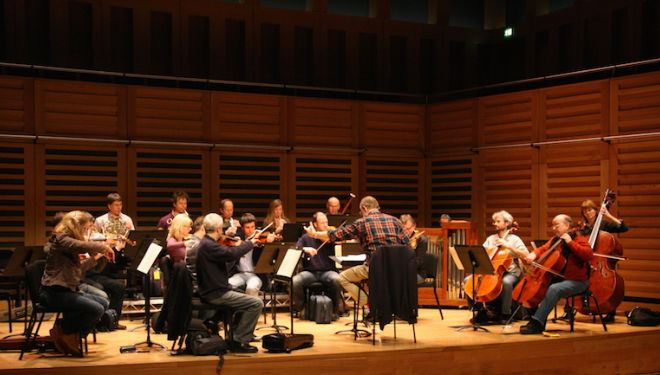
This is our dilemma with Richard Jones's production of Handel's Rodelinda by the English National Opera, where a delectable three-course classic is slopped down with antics that belong in the circus. We love a clown as much as the next person (that is, probably not much at all), but Rodelinda is all about nobility and the triumph of love and forgiveness over jealousy; never about giant explosives and Beano-style detonators.
So muddled is the thinking behind this pantomime that the audience is befuddled into thinking everything is comic, right down to the mistaken attack by a fugitive on the very friend who risks his own life to help him. Some of the blame lies in rum-tee-tum rhyming couplets in the English translation. But the rest lies with Jones. Regular opera-goers know thatwhen he is good he is very, very good (La Bohème at the Royal Opera House, Die Meistersinger at ENO), and when he is bad – as here – he is horrid.
Bertarido has lost his kingdom (here Milan, in early Mussolini years) to Grimoaldo, and is on the run. His wife Rodelinda is captured and told he is dead. His stealthy return leads, after some false starts, to reconciliation. Cue happiness.
But the split-stage means that unrelated business cuts across arias distinguished by their purity and focus. Here we have a claustrophic study for manspreading Grimoaldo; there, a nasty, stained cell for the heroine. No tic or trope goes untried: tobacco, tattooing, CCTV, a tango... When Rodelinda cradles her son, it has to be flagged up by a goon that this mirrors the religious Pietà on the nasty wall behind. Yes, we got that, thank you.
The most useful thing those explosives could do is blow up the three giant running machines downstage that facilitate some Keystone Kops style chases and that otherwise are only, to use the correct musical terminology, in the bloody way.
This pile-up is relieved by some marvellous singing. Rebecca Evans, reprising the title role that she took when this production was first staged in 2014, is sensuous, determined and sustains a ringing tone (even though more arched phrasing would melt the heart further). As Bertarido, counter-tenor Tim Mead sings some of Handel's loveliest arias with his customary perfection of tone and refined musicality.
As Bertarido's hapless helper Unulfo is the fast-rising US counter-tenor Christopher Lowrey – this is a singer to watch, wherever he pops up next. With baritone Neal Davies on splendid form as the ruthless Garibaldo, tenor Juan Sancho as the usurper Grimoaldo, and early music specialist Christian Curnyn conducting, musical excellence is assured, give or take a little thickness of texture in the orchestra – Handel can be zippier than this, but the Coliseum's architecture is not on his side – and Sancho's thinnish top.
Susan Bickley's Eduige, a role that inclines towards the Widow Twankey at the best of times, is rendered ludicrous by a frock that is a cross between a first upholstery lesson and a lampshade.
So, do you book, because the music is absolute scrummy, and ignore the rude maître d'? On balance, yes. But be prepared to close your eyes from time to time, and just listen to that score.
Rodelinda is sung in English with English surtitles.
| What | Handel's Rodelinda review , English National Opera |
| Where | English National Opera, London Coliseum, St Martin's Lane, London, WC2N 4ES | MAP |
| Nearest tube | Embankment (underground) |
| When |
26 Oct 17 – 11 Nov 17, times vary; six performances lasting about 3hr 25min |
| Price | £12 - £125 |
| Website | Click here for more information and booking |






